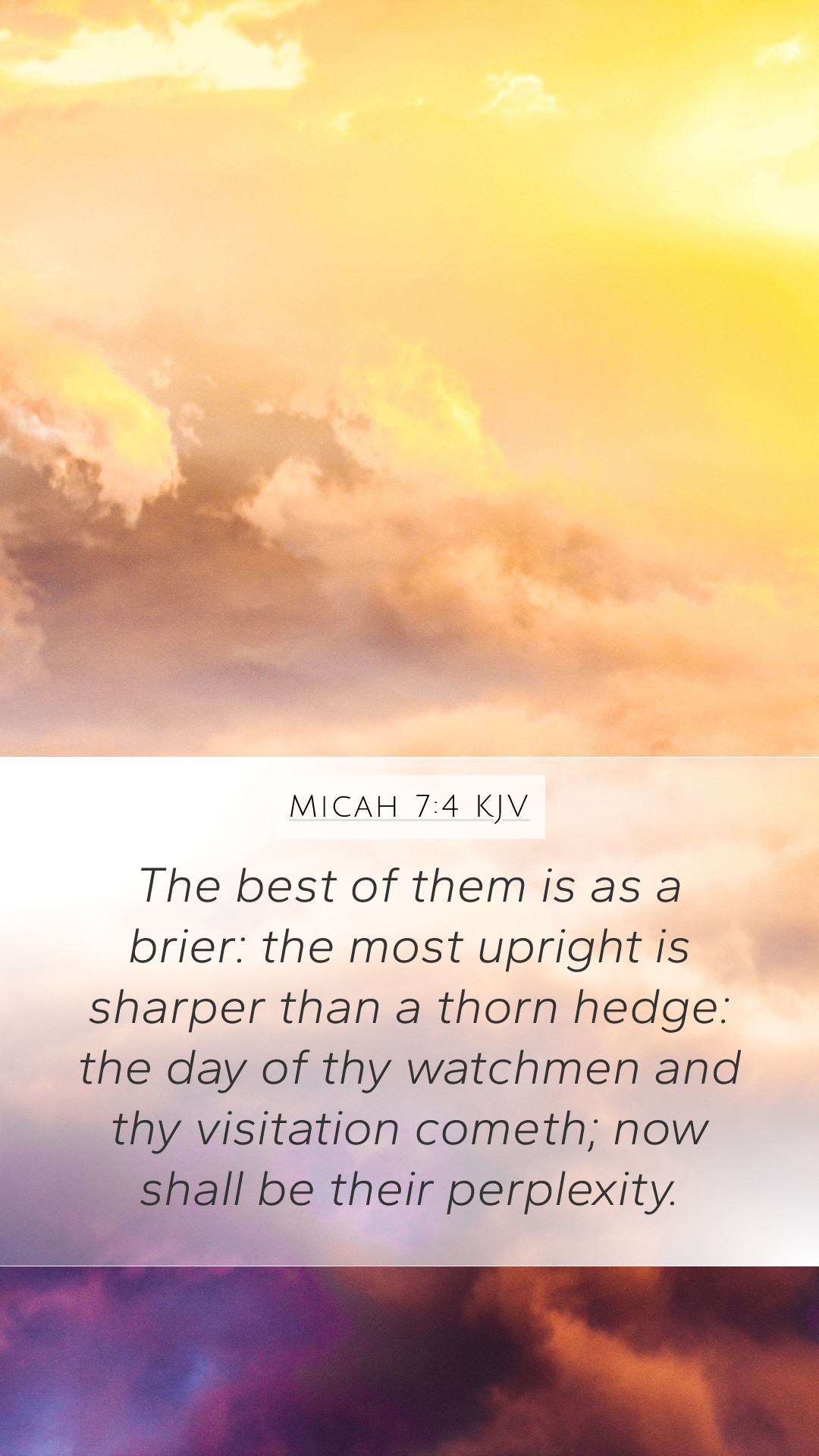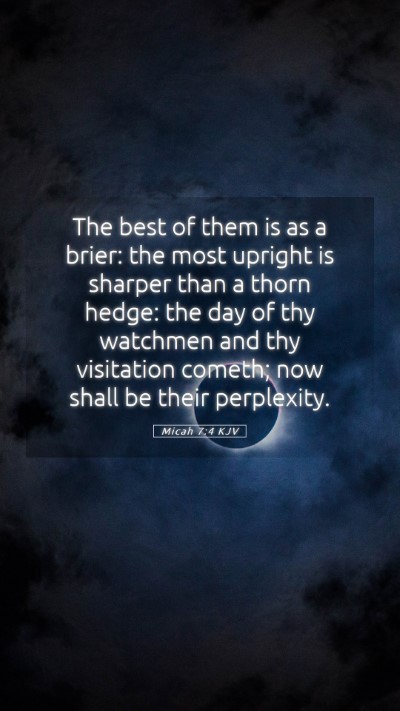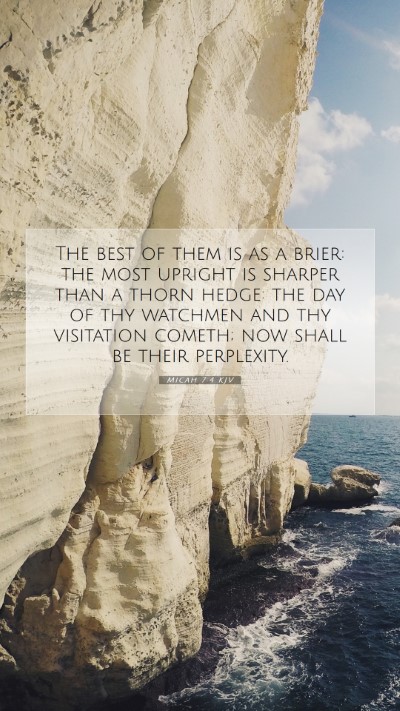Old Testament
Genesis Exodus Leviticus Numbers Deuteronomy Joshua Judges Ruth 1 Samuel 2 Samuel 1 Kings 2 Kings 1 Chronicles 2 Chronicles Ezra Nehemiah Esther Job Psalms Proverbs Ecclesiastes Song of Solomon Isaiah Jeremiah Lamentations Ezekiel Daniel Hosea Joel Amos Obadiah Jonah Micah Nahum Habakkuk Zephaniah Haggai Zechariah MalachiMicah 7:4 Meaning
What is the meaning of Micah 7:4?
The best of them is as a brier: the most upright is sharper than a thorn hedge: the day of thy watchmen and thy visitation cometh; now shall be their perplexity.
Micah 7:4 Bible Verse Meaning
Bible Verse Meaning of Micah 7:4
Verse: Micah 7:4 - "The best of them is like a brier; the most upright is sharper than a thorn hedge: the day of thy watchmen and thy visitation cometh; now shall be their perplexity."
Overview and Context
The book of Micah, a prophetic work in the Old Testament, illustrates the moral decay and impending judgment of Israel. Micah speaks to the people of God, warning and lamenting the state of society. Micah 7:4 embodies the profound disillusionment in leadership and social integrity during a time of crisis.
Insights from Commentaries
-
Matthew Henry:
Henry explains that this verse reflects the harsh reality of Israel's moral landscape, where the leaders have become corrupt and unreliable. The "best of them" refers to those who might appear virtuous but ultimately do not provide the guidance expected from a righteous leader. The brier and thorn hedge symbolize the pain and danger inherent in trusting such individuals.
-
Albert Barnes:
Barnes highlights the stark contrast between expectations of leadership and the reality. The reference to "thorns" indicates that even the righteous are now twisted and unable to provide shelter or safety. Barnes connects this imagery to the judgment that is to come, suggesting a time of testing when the deceitfulness of the leaders will be fully revealed.
-
Adam Clarke:
Clarke elaborates on the idea of the "watchmen" as those appointed to guide and warn the people. Their inability to perceive the deeper dangers emphasizes the spiritual blindness present in the nation. He also notes the impending visitation from God is both a reckoning of sin and a potential for renewal.
Key Themes and Concepts
- Corruption of Leaders: The verse starkly illustrates the betrayal felt by Micah as he laments the deterioration of trustworthy leaders within Israel, which serves as a reflection on the nature of human authority and faithfulness.
- Judgment and Accountability: The announcement of "the day of thy watchmen" serves as a portent of divine intervention where leaders will be held accountable for their actions and the people will face the consequences of their collective sin.
- Symbolism of Thorns: Thorns and briers symbolize hostility and pain, depicting the brokenness of the community and the spiritual barrenness prevalent within the society.
Application of the Verse
Understanding Micah 7:4 can significantly inform how individuals approach leadership and accountability in both spiritual and secular realms. This verse serves as a timeless reminder of the importance of integrity and the consequences of spiritual leadership's failure.
Cross References
- Isaiah 10:1-2 - Woe to those who make unjust laws and to those who issue oppressive decrees.
- Ezekiel 34:2 - "Son of man, prophesy against the shepherds of Israel" highlighting the failures of leadership.
- Jeremiah 23:1-2 - "Woe to the shepherds who are destroying and scattering the sheep of my pasture!" emphasizes the condemnation of bad leaders.
Conclusion
Micah 7:4 invites reflection on the importance of righteous leadership and the devastating effects of its absence. For anyone seeking Bible verse meanings or Bible verse interpretations, this passage poignantly illustrates the conflict between expectation and reality in spiritual governance. The insights offered by public domain commentaries deepen our understanding and encourage critical reflection in one's personal life and communal faith practices.


